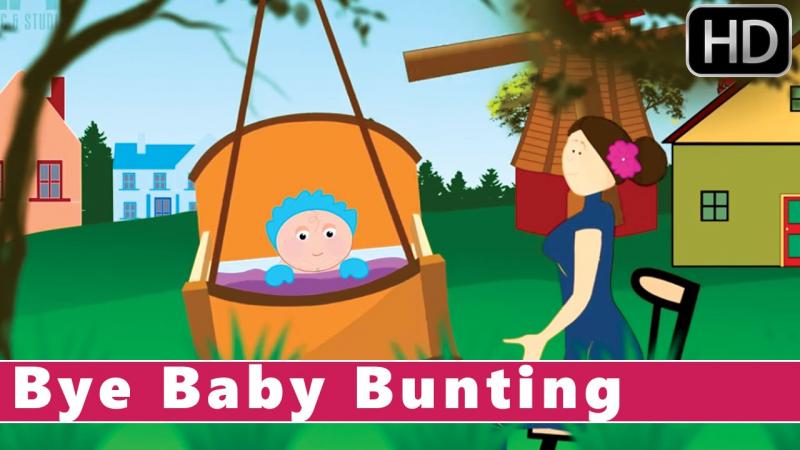Nursery Rhyme Categories:

'Bye, baby Bunting' is a popular English-language nursery rhyme and lullaby. It has a Roud Folk Song Index number of 11018.
"Bye, baby Bunting" Lyrics
The most common modern version is:
Bye, baby Bunting,
Daddy’s gone a-hunting,
Gone to get a rabbit skin
To wrap the baby Bunting in.
"Bye, baby Bunting" Chords
C G7 C Bye, baby Bunting, G7 C Daddy’s gone a-hunting to G7 D get poor baby a rabbit skin to A7 D wrap the baby Bunting in.
"Bye, baby Bunting" Origins
The expression bunting is a term of endearment that may also imply 'plump'. The earliest published version was published in Gammer Gurton's Garland or The Nursery Parnassus in England in 1784. A version in Songs for the Nursery 1805 had the longer lyrics:
Bye, baby Bunting,
Father's gone a-hunting,
Mother's gone a-milking,
Sister's gone a-silking,
Brother's gone to buy a skin
To wrap the baby Bunting in.
"Bye, baby Bunting" Youtube Videos
Tags:



